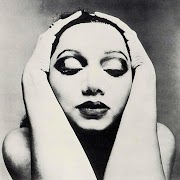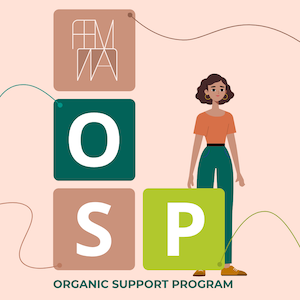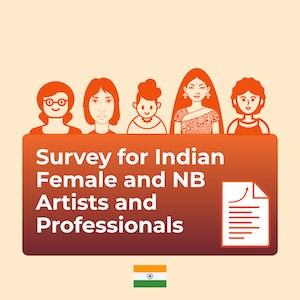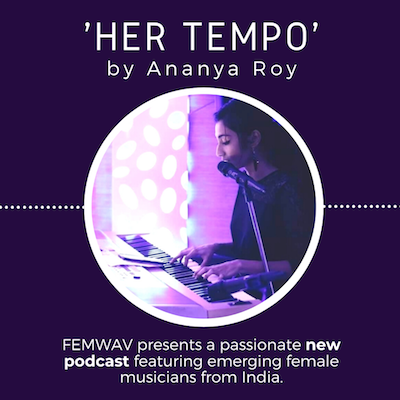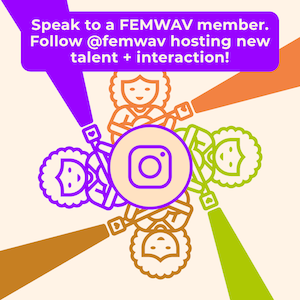An overwhelming majority of women think platforms that cover Indian music have not done much at all, to address the #MeToo incidents. The same can be said about the general apathy shown by most Indian websites and journals about the subject of sexual harassment. A nationwide survey conducted by Indian-American singer-songwriter Amanda Sodhi takes a look at the nuances of sexual harassment women face within India's music industry. Over 100 women from India's music industry have taken this survey, and the results are very unsettling (shameful to be precise). About 69.52 per cent women from India's music scene indicated that they have faced some form of sexual harassment. FEMWAV recently spoke to Amanda Sodhi about this in-depth study into the issue of harassment and assault - What motivated her as an artist to take on the survey and what we can learn from the data.
Femwav : What led you to take this survey?
Sodhi : Having faced sexual harassment within the music scene, several times, over the past few years, I felt it was important to collect data regarding the experiences of other women. There haven't been any numbers on the table about how rampant sexual harassment really is within the Indian music scene.
Femwav : How did you go about conducting the survey?
Sodhi : When I was conducting extensive research to administer this survey, I could barely find 400-500 names of women active in the music scene, nationwide, to send the survey link to. It's sad that we can't even offer a safe work environment for such a tiny group! Fear of losing out on work opportunities was one of the top two reasons to not report incidents of sexual harassment. I hope female artists who are doing hundreds of shows each year can perhaps pledge to employ X number of women in the year for X number of shows - whether it be as opening acts, musicians or sound engineers - in essence, affirmative action that empowers women to speak up without worrying about losing all employability in an industry that is dominated by men.

Sodhi : When I was conducting extensive research to administer this survey, I could barely find 400-500 names of women active in the music scene, nationwide, to send the survey link to. It's sad that we can't even offer a safe work environment for such a tiny group! Fear of losing out on work opportunities was one of the top two reasons to not report incidents of sexual harassment. I hope female artists who are doing hundreds of shows each year can perhaps pledge to employ X number of women in the year for X number of shows - whether it be as opening acts, musicians or sound engineers - in essence, affirmative action that empowers women to speak up without worrying about losing all employability in an industry that is dominated by men.

Femwav: What is the objective in general?
Sodhi: I sincerely hope this information lends itself to a meaningful dialogue, so that, both, men and women are educated about sexual harassment and safety measures are put in place.
The survey details are as below:
The survey further revealed that predators belonged to the following facets of the Indian music industry:
- Musician - 25.77%
- Music Producer - 24.54%
- Event / Gig Organizer - 18.41%
- Other - 12.27%
- Singer - 9.82%
- Talent Manager- 7.98%
- Lyricist - 1.23%
Besides, 72.6 per cent women who have faced some form of sexual harassment did not report the incident(s) because of the following reasons/fears -
- They thought reporting incidents won't make any difference. - 20.76%
- They were afraid of losing out on work opportunities. - 16.98%
- They were afraid for their safety. - 12.26%
- They were afraid of being judged. - 11.32%
- They were afraid of legal issues. - 11.32%
- They were afraid of being labeled a ‘troublemaker.’ - 10.38%
- Not specified - 10.38%
- They were afraid no one would believe them. - 6.60%
Femwav : Your research reveals how vulnerability, prejudice and the culture of harassment co-exists. Tell us more about your findings?
Sodhi : Among women who have experienced sexual harassment within the Indian music industry, vulnerability can be ranked from highest to lowest in this order - singers/singer-songwriters, musicians, music producers/music composers, lyricists, artist managers, people in the business-side of music and sound engineers.
Among the 18-25 age group, 75% have experienced some form of sexual harassment, whereas, in the 26+ age group, the percentage was 66.67% per cent. This hints at the possibility that sexual harassment might be more rampant within the Indian music scene today than it was before.
Irrespective of whether they have or haven't faced sexual harassment, 70.5%women believe that the prospect of a physical and/or romantic relationship is a motivating factor in many male musicians/composers/music producers - who agree to work/collaborate/help with newer female artists.
97.1 per cent of women in music think, the Indian music industry should have initiatives/organizations/committees to handle #MeToo incidents and take action.70.5 per cent women do not think platforms that cover Indian music industry have done a decent job of covering #MeToo incidents.







